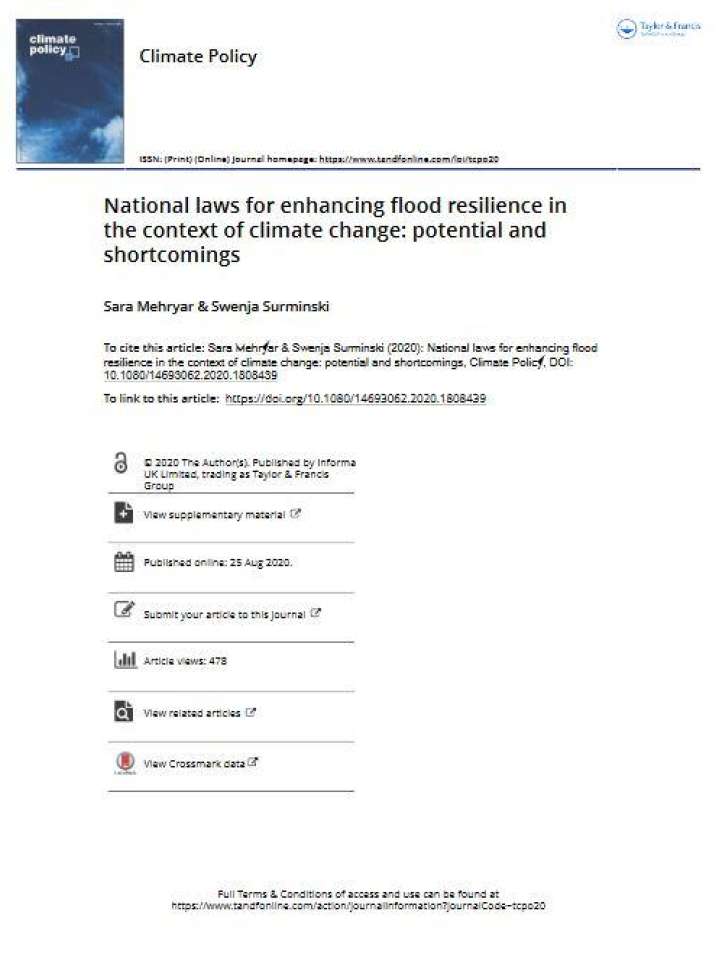National laws for enhancing flood resilience in the context of climate change: potential and shortcomings
In this study, the authors explore the potentials and shortcomings of national laws in managing flood risk and increasing flood resilience in the context of climate change. They analyze 139 laws from 33 countries collected from the Climate Change Laws of the World and Disaster Law databases and underpin this with case studies to gain insights on the interplay between national laws and resilience processes.
The authors find the following key policy insights:
- Flood-related laws around the world lack consideration of future risks. Disaster risk management and climate change are often considered as separate issues in national laws, which can lead to gaps in institutional ownership, responsibilities, and allocated budgets.
- Flood-related laws are mainly created after major events, most of which are focused on reactive strategies (i.e. response and recovery). Laws can facilitate the shift from post-event response to anticipatory actions by encouraging proactive flood risk management (FRM) activities (i.e. risk reduction).
- Nature-based solutions often remain unrecognized in national laws due to the dominant focus on hard engineering measures. FRM should be treated as a holistic concept in laws: ensuring all the necessary human, social, physical, natural and financial systems are in place to support it.
Explore further
